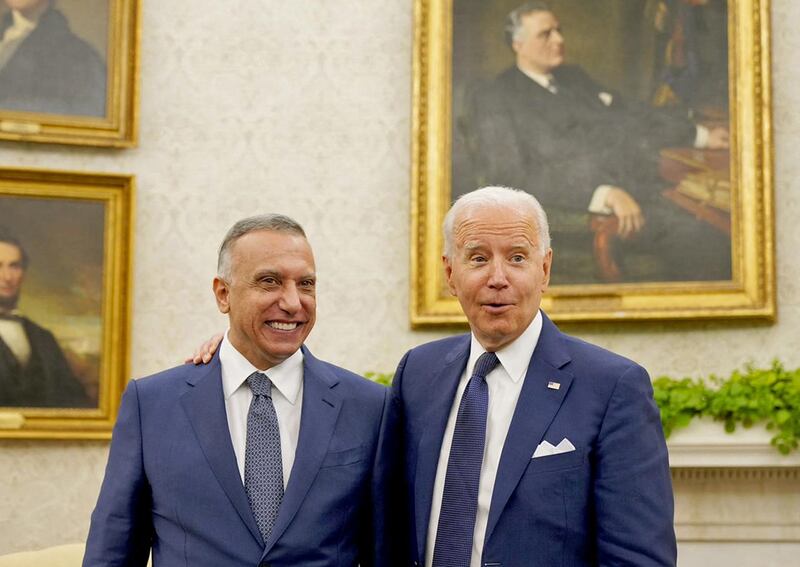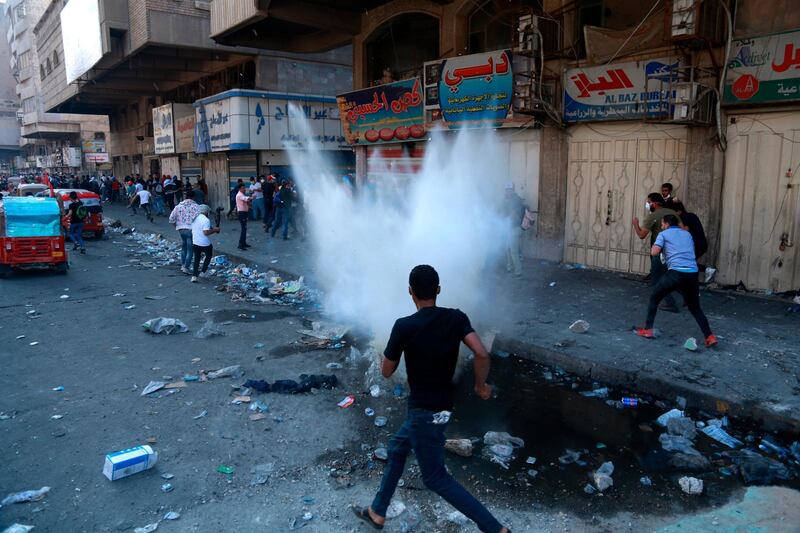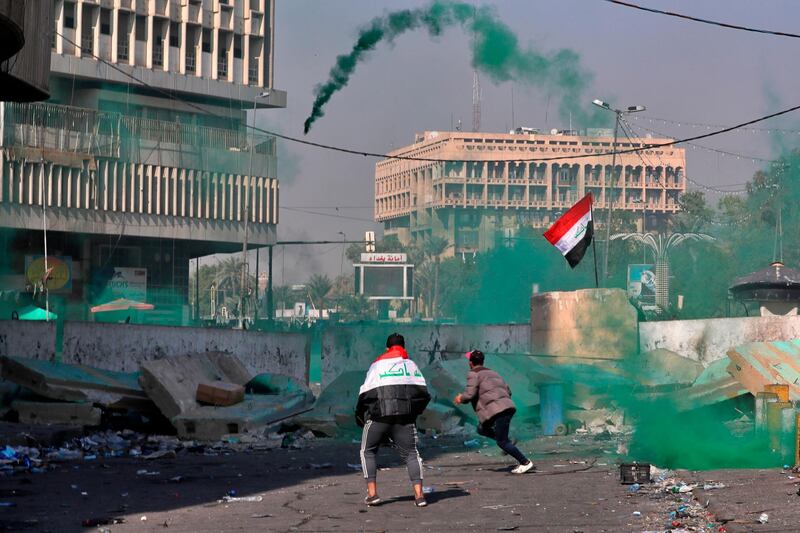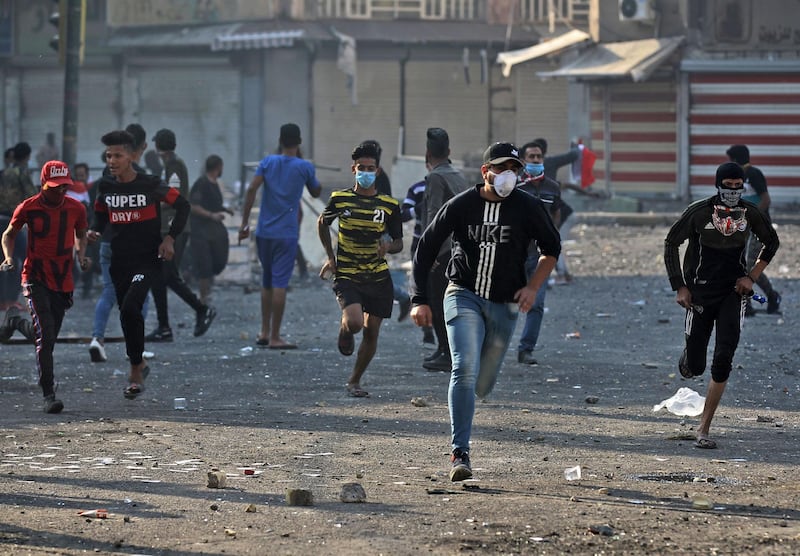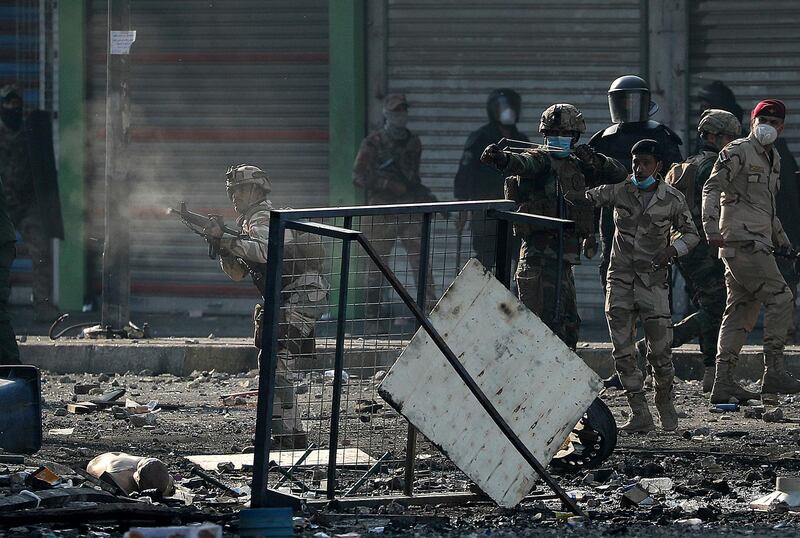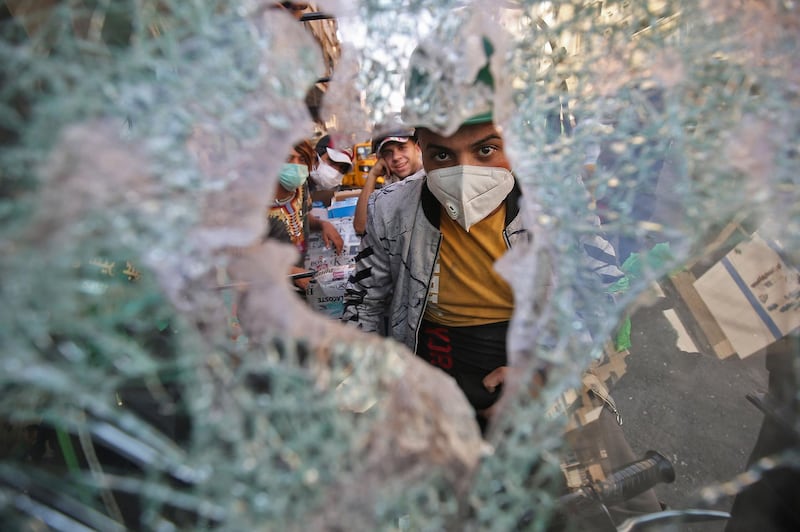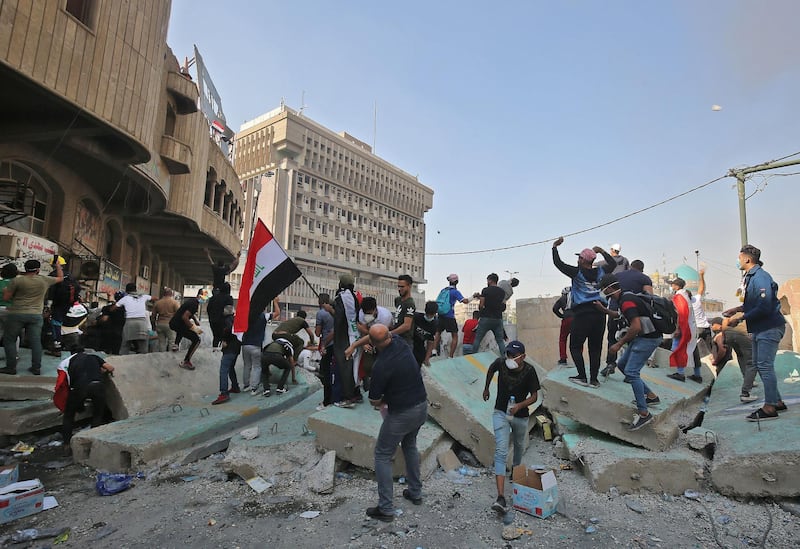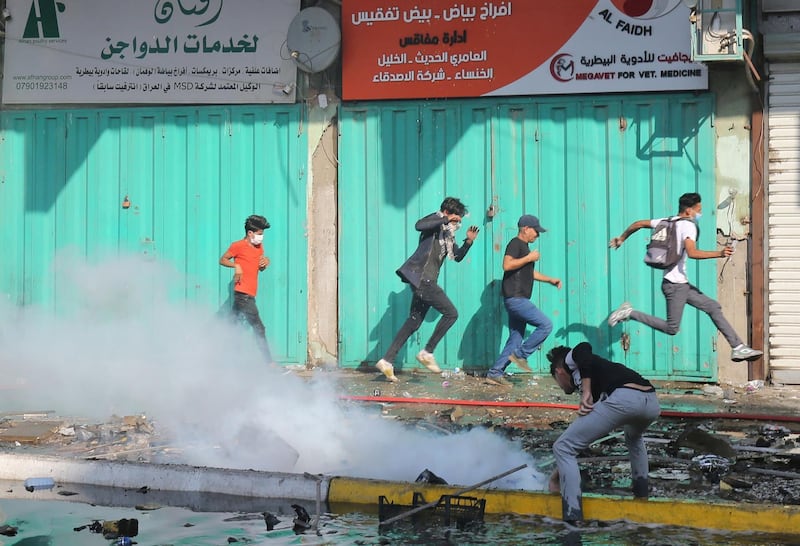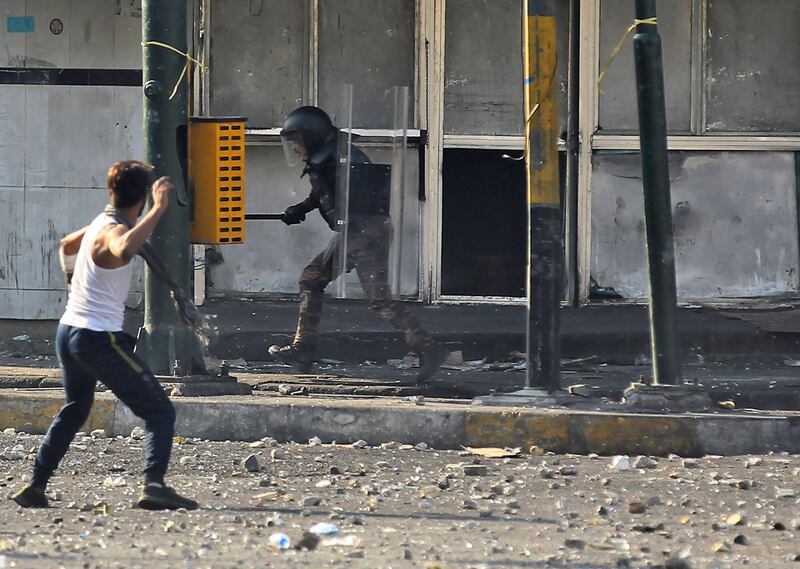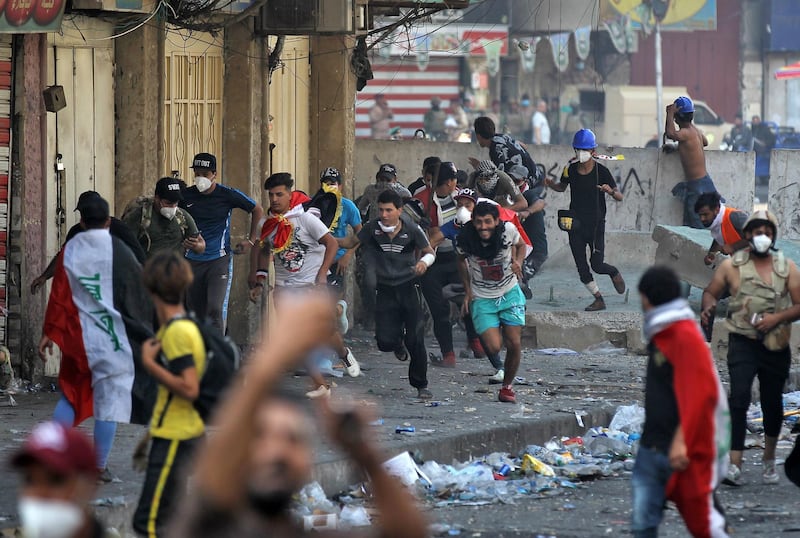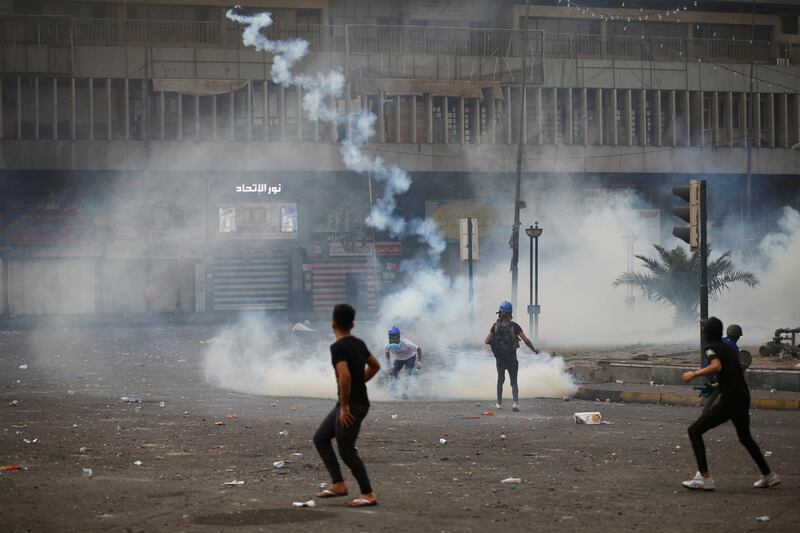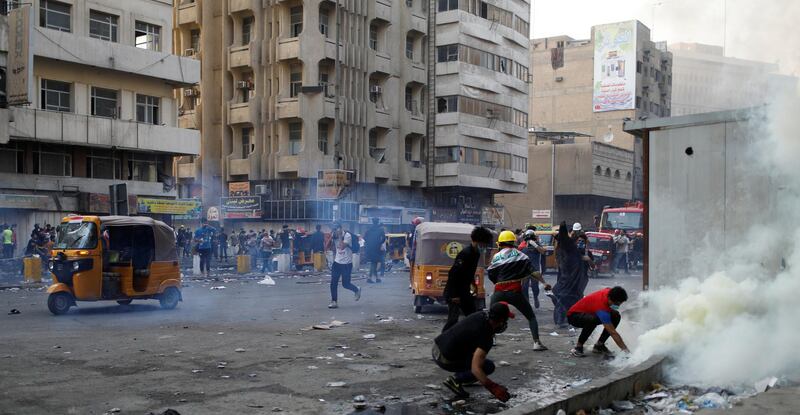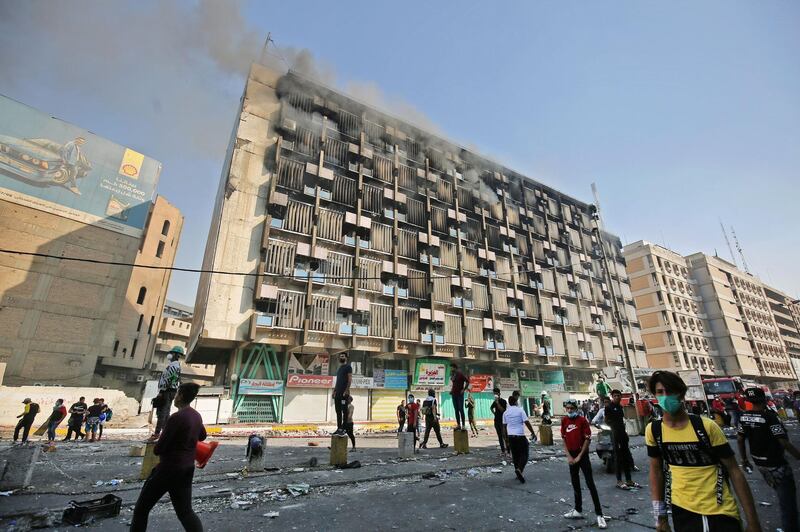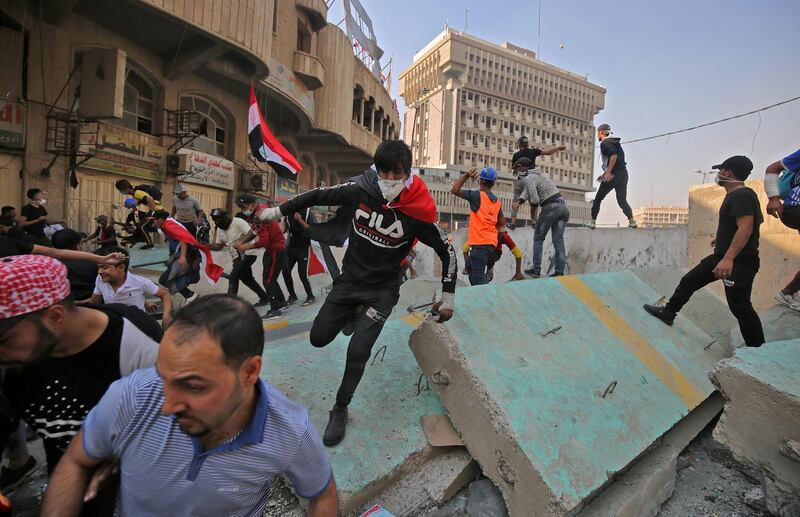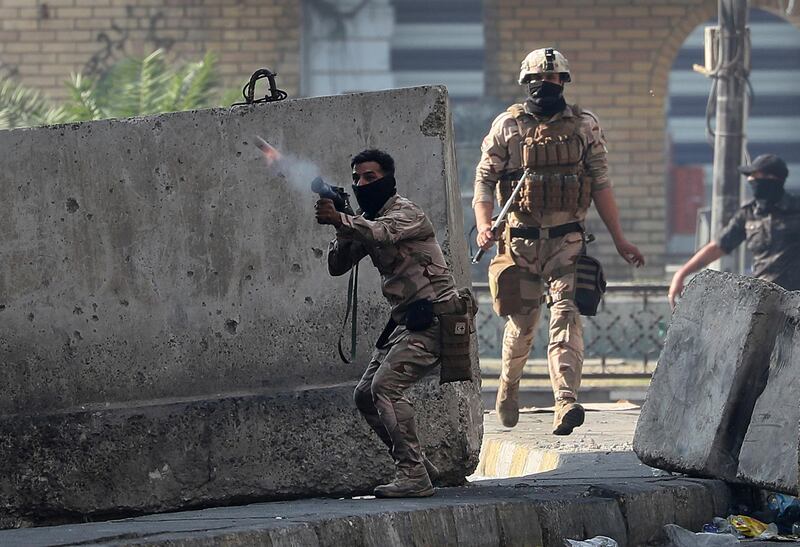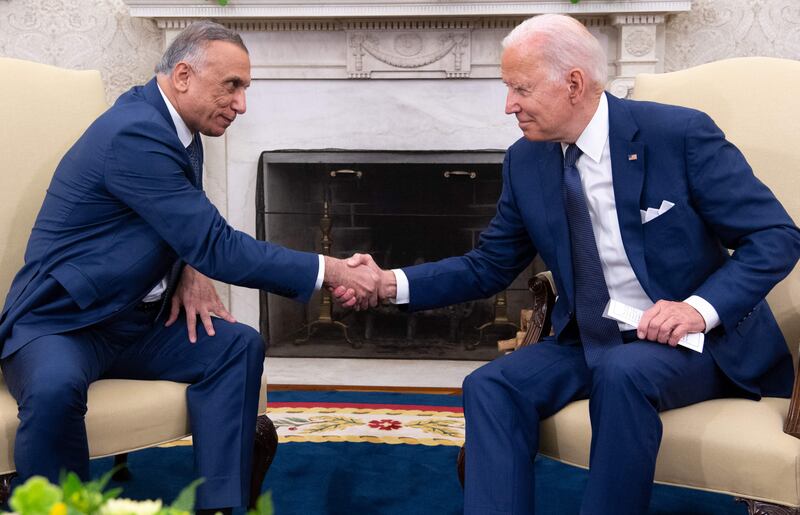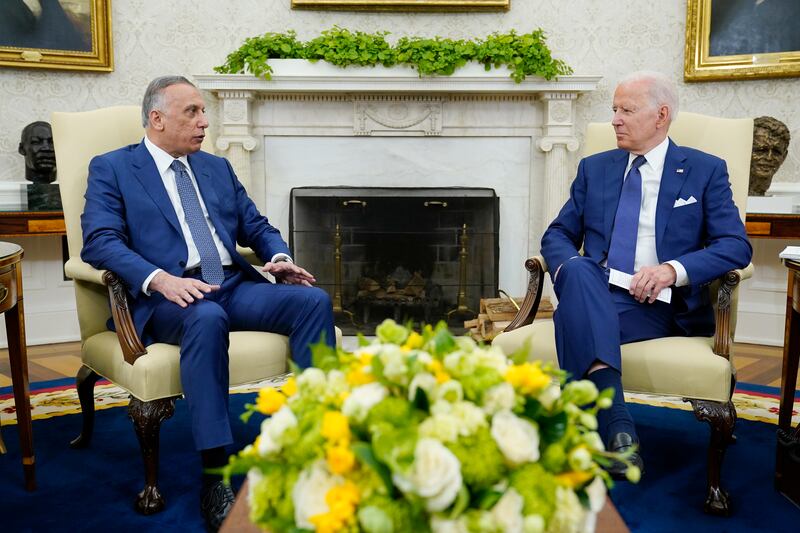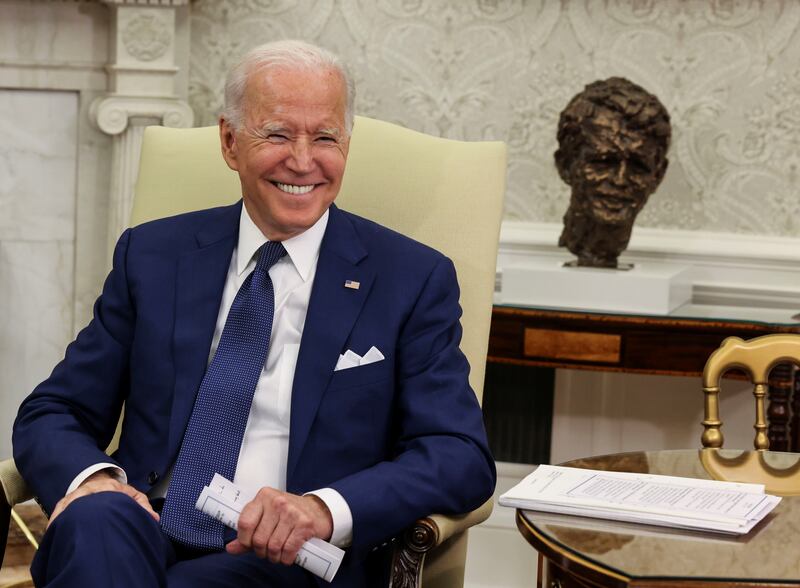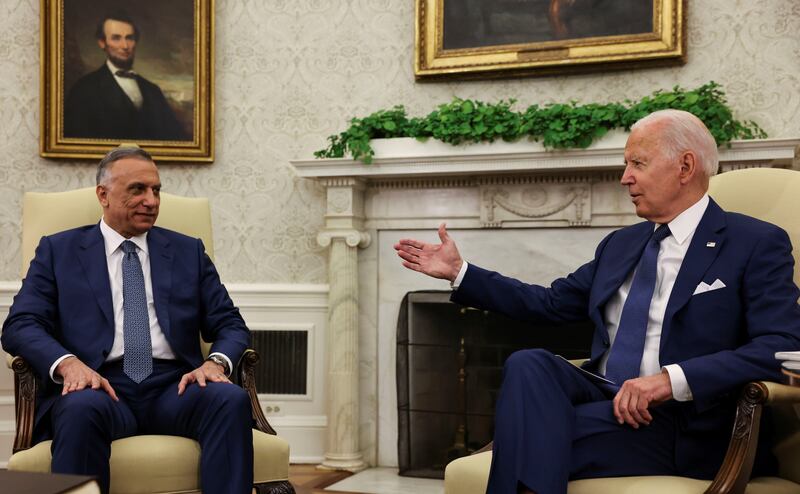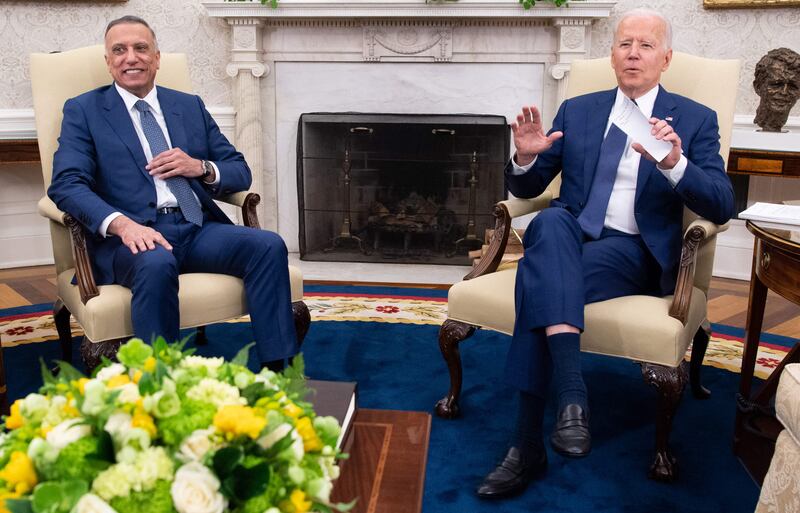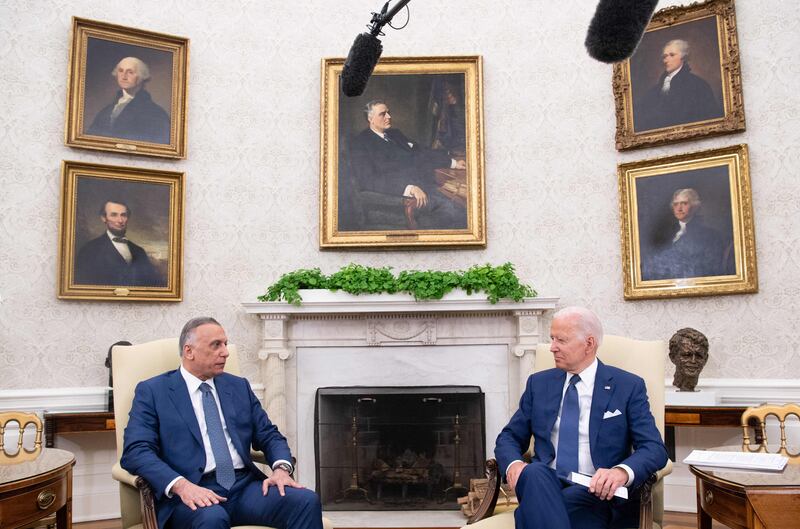Iraqi Prime Minister Mustafa Al Kadhimi wrapped up his visit to the US this week, leaving with several generous gifts from President Joe Biden that could strengthen his hand in the lead up to Iraq’s parliamentary elections.
The latest meeting in the US-Iraq strategic dialogue wrapped on Monday with a White House summit between Mr Al Kadhimi and Mr Biden.
Much of the attention focused on the largely symbolic announcement that the US would end its combat mission in Iraq by the end of the year — a change that will not result in any actual withdrawal of the 2,500 US soldiers stationed there in an advise-and-assist capacity.
While the announcement will surely do little to appease the Iran-backed factions pressuring Mr Al Kadhimi to fully expel US forces, he can point to a series of other concrete commitments made by the Biden administration before the elections scheduled for October.
“There need to be deliverables, just for Al Kadhimi to go back to Baghdad to say 'I got this,'” Randa Slim, a senior fellow at the Middle East Institute, told The National. “That has been the case all the time in the past, and so that has been a standard modus operandi.”
Mr Al Kadhimi personally thanked Mr Biden in front of reporters after the president said that 500,000 Covid vaccines donated by the US would arrive in Iraqi within the next two weeks. The US will also provide another $800,000 in funding for Iraq's pathogen track-and-trace programmes.
Mr Biden touted expanded co-operation on other healthcare and energy issues. Specifically, the US Centres for Disease Control and Prevention is signing an agreement with the Iraqi health sector to improve the country’s public health capacity after several hospital fires in recent months killed dozens of patients and further fuelled continuing anti-government protests.
The US also committed to providing Iraq with $155 million in humanitarian assistance for more than one million internally displaced people residing in the country and the Development Finance Corporation will invest about $1 billion to bolster the Iraqi private sector.
Why are US troops in Iraq?
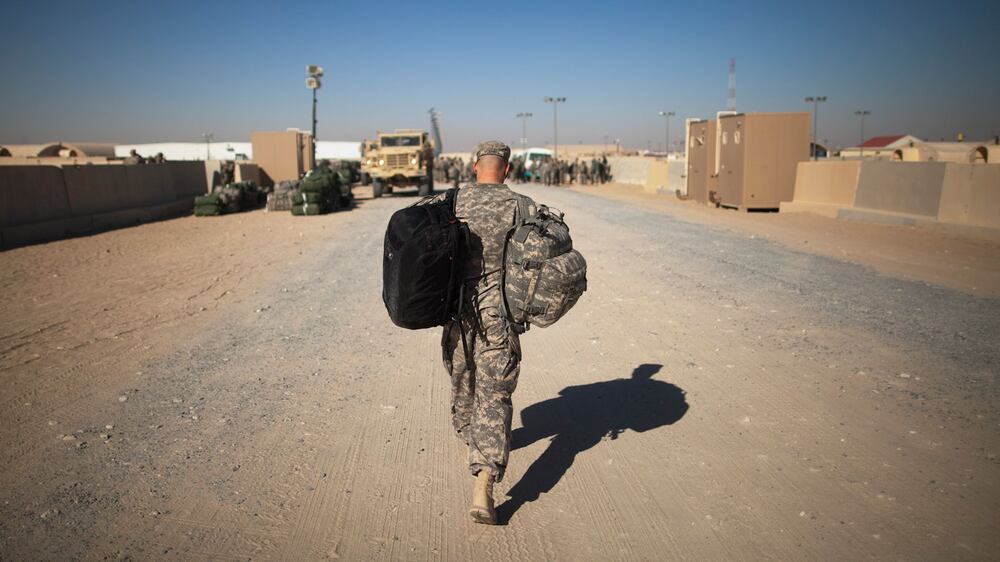
Washington will also provide $1.2m in funding to restore Iraqi universities destroyed by ISIS in Nineveh province.
Additionally, a senior administration official said the US is finalising agreements to fund a project connecting the Iraqi and Jordanian electricity grids.
The US Agency for International Development is funding the project in Jordan, while the US-based energy company General Electric is providing funds to do the same on the Iraqi side.
While the US has continually renewed a sanctions waiver for Iraq to import the natural gas it needs from Iran to fuel its electricity sector, Washington continues to pressure Baghdad to reduce its reliance on Iranian oil. Frequent power shortages over the last several years have exacerbated anti-government protests that began in 2019.
The senior administration official also said the US and Iraq will soon complete a project to capture a daily 5.2 million cubic metres in flares from oil exploration in southern Iraq, which account for approximately 10 per cent of flared greenhouse gas emissions worldwide.
In addition, the Biden administration is pushing for Iraq to move ahead with its elections as scheduled and is providing assistance to that end.
The White House readout of Mr Al Kadhimi’s meeting with Mr Biden noted that “the leaders agreed on the vital importance of holding these elections on time and welcomed the UN monitoring mission to support their full transparency and fairness".
For his part, Mr Biden told reporters that the US is “working very hard with the Iraqi government to make sure the UN and the [Gulf Co-operation Council]” provide “oversight” and achieve “full and fair elections".
To that end, the US is providing $5.2m to the UN election monitoring mission in Iraq and another $9.7m for Iraq’s High Electoral Commission.
Still, it is uncertain that the elections will even proceed as scheduled.
“I’m not sure they will be held on time despite all the preparation, all the statements,” said Ms Slim. “There is a 50-50 chance that they will not be held in October and everything will be delayed until 2022.”
If elections do go forward in October, Ms Slim noted that she does not expect much to change on the Iraqi political map but said there may be less support for the coalition affiliated with Iran-backed militia groups.
Michael Knights, a fellow at the Washington Institute for Near East Policy, told The National he believes Iran-backed factions could expand their influence in the Iraqi Parliament should elections move forward.
“Under those circumstances, you could imagine the Iranians telling their Iraqi allies, 'we want another law passed saying all American troops out now,'” Mr Knights said.
Either way, Mr Al Kadhimi’s remaining days as prime minister may be numbered despite his close relationship with the Americans.
“I don’t view a relationship with Biden as being crucial one way or the other, except to the extent that it might be negative,” Kirk Sowell, principal of the Utica Risk Services consulting firm, told The National.
“His credibility is very, very low right now given the domestic problems of the last month: the electricity collapse, the weakness on security and then the new hospital fire tragedy.
“Unless they just can’t find anyone else upon whom to agree after the election, it is hard to see him being re-elected, regardless.”
